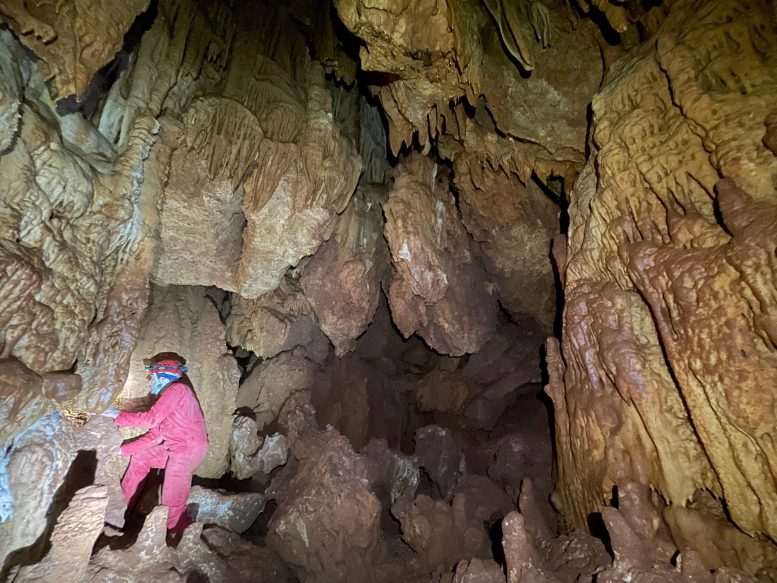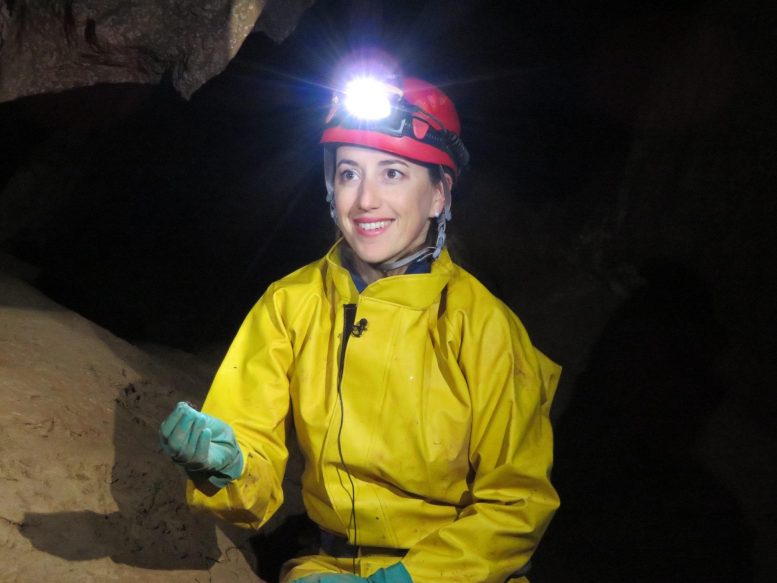
A global study examining temperature changes in 12 caves across the world indicates that a significant portion of the Earth’s readily available freshwater supplies may be endangered by climate change.
Caves allow scientists to observe the underground systems that are distributed throughout the planet – systems which, in their vast majority, are inaccessible to human beings. These ecosystems are home to the largest reserves of fresh water available for immediate human consumption and are inhabited by unique and highly adapted organisms, which guarantee the quality of these strategic reserves for the future of humanity by recycling organic matter and contaminants.
In this study, recently published in Scientific Reports, the international research team analyzed over 105000 temperature measurements in caves located in different climatic areas and compared them with the corresponding surface temperature.
“The temperature variations revealed three distinct patterns of thermal response of the underground environment in comparison to the surface, which is new,” says Ana Sofia Reboleira, coordinator of this study, biologist at the Centre for Ecology, Evolution, and Environmental Changes – cE3c, at the Faculty of Sciences of the University of Lisbon (Portugal).

All the annual variations of temperature registered in caves were small – between 0.1ºC, the smallest, and 8.8ºC, the largest. But while in some cases the cave temperatures reflected the surface temperature with a slight delay, in others the surface variations were rapidly reflected in the underground. There were also some cases in which there was an inverse pattern: the higher the temperature at the surface, the lower in the cave (and vice-versa), as in a thermal mirror.
Implications of Temperature Changes on Cave Ecosystems
“Our results demonstrate that the average temperature in caves reflects the average temperature outside. The consequence is that the rise in temperature predicted in the context of climate change at the surface will be reflected in the underground,” explains Ana Sofia Reboleira.
Caves are inhabited by communities of rare and unprotected species – that guarantee water quality and are adapted to living in very stable environments, with minimal temperature variations. Thus, “the consequences of the increase in temperature are absolutely unpredictable and certainly harmful to the quality of the largest reserves of fresh water available for immediate consumption,” warns the researcher.

This study also reveals the existence of daily thermal cycles in some caves. In ecosystems with a total absence of sunlight, organisms lack circadian rhythms. “This surprising discovery shows that these daily thermal cycles can potentially control the biological rhythms in subterranean organisms,” explains Ana Sofia Reboleira.
Several of the caves studied as part of this study are global hotspots of underground biodiversity – such as Planina, in Slovenia; Viento, in the Canaries; and Vale Telheiro, located in Portugal.
Reference: “Temperature variation in caves and its significance for subterranean ecosystems” by Maria J. Medina, Dragan Antić, Paulo A. V. Borges, Špela Borko, Cene Fišer, Stein-Erik Lauritzen, Jose L. Martín, Pedro Oromí, Martina Pavlek, Ester Premate, Ken P. Puliafico, Alberto Sendra and Ana Sofia P. S. Reboleira, 25 November 2023, Scientific Reports.
DOI: 10.1038/s41598-023-48014-7
2 Comments
As is typical, the operative word here is “may.” I might actually be worried if alarmists were to assign a high probability with small error bars — and be willing to stand behind their prediction.
As summarised in a CLIMATECHANGEDISPATCH article (Paul Driessen; Jan 26, 2024)
“… Climate alarmism implicitly assumes Earth’s climate was stable until coal, oil, and gas emissions knocked it off-kilter, and would be stable again if people stopped using fossil fuels…”
The University of Lisbon article also then concludes:
Thus,
“… the consequences of the increase in temperature are absolutely unpredictable and certainly harmful to the quality of the largest reserves of fresh water available for immediate consumption…”
So, presumably, using the above assumptions/discovery, we should now conclude, “all would be well again underground”, if the pesky external temperature/climate would (on its own and no other variables or influences?) just be allowed to stabilize ?
Note though, the Earth’s climate has constantly changed, due natural forces, throughout its geological history.
More nasties for the CO2 evangelists also to utilise, use as a potential water income “stream”, and supporting scientists to explore further perhaps?
Or am I just being too cynical.